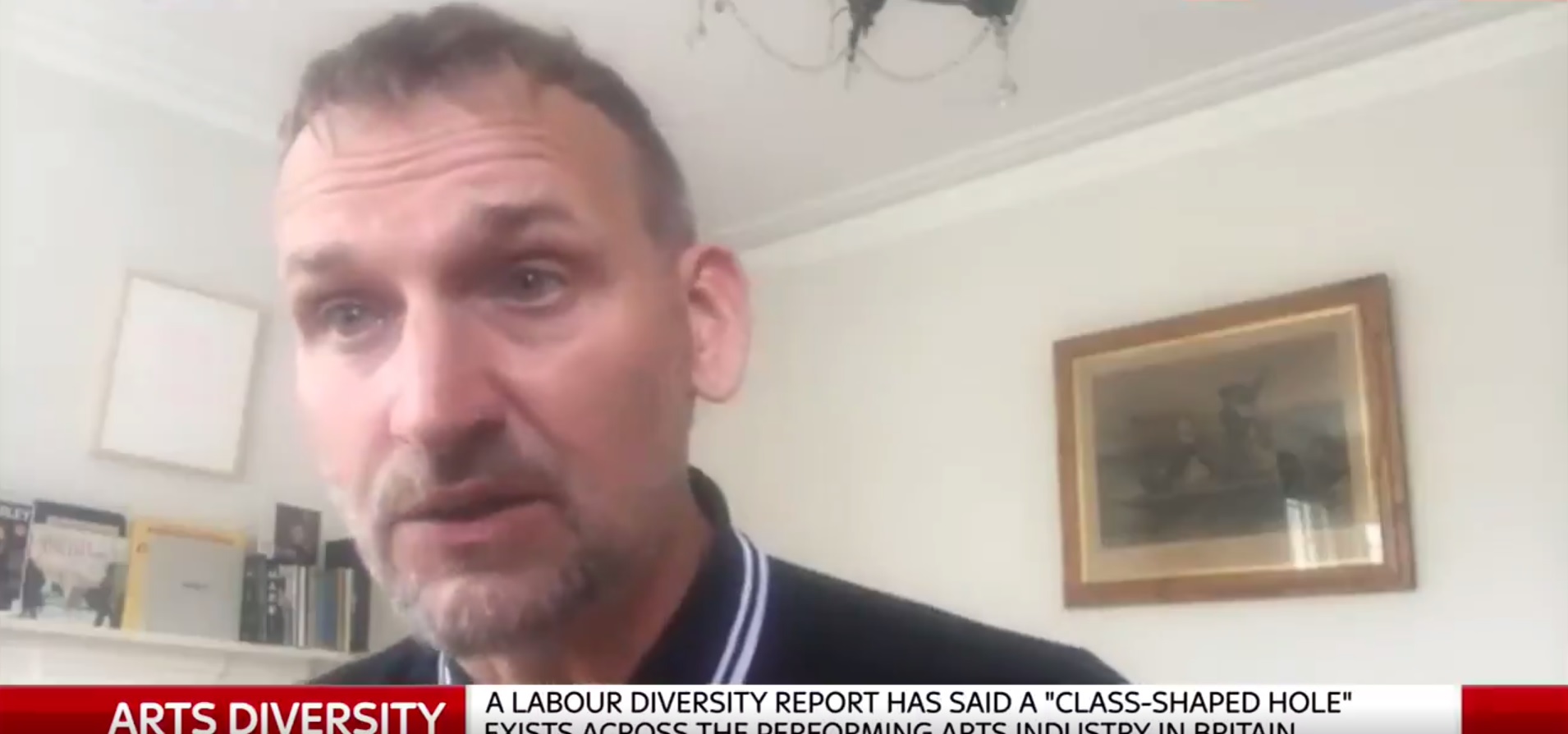Christopher Eccleston Says the Arts Are the “Tip of an Iceberg” When It Comes to Diversity and Inclusion

Christopher Eccleston says his working class roots put him at a disadvantage compared to the “boys’ club” of public school-educated actors pic.twitter.com/olDuTY0SSa
— Sky News (@SkyNews) August 10, 2017
Diversity and inclusion go beyond race and even gender. Class is an important indicator of the advantages (or lack thereof) a person will have, and this can be compounded by race and gender to make things even worse for someone. In a recent interview, Christopher Eccleston talks about why it’s important to think about this when it comes to diversity in the arts, and why the arts should only be a first step.
In an interview with Sky News in the UK, Eccleston talked about the disadvantages of being a working class actor in an environment where most actors are pulled from higher-class universities and drama schools that kids with his background could never afford.
Despite that, he also recognizes that he has a very definite advantage in being white and being male, and that overcomes a lot, but there’s still the issue of how one grew up and where one went to school. He talks about being the first Doctor in the history of Doctor Who to have used a regional accent, and about the fact that even other actors portraying the Doctor before him who had working-class accents put on an “RP” (Received Pronunciation) accent, which is typical of higher classes and the accent that’s taught in drama schools.
Eccleston believes that it’s worse for kids from his working-class background now than it ever has been. He says:
“It was a lot easier for me than it is for the equivalent. I couldn’t have gone to drama school today. My parents could not have afforded to pay for me to go to drama school now. People like me are not going to come through anymore. There is no way that film, television, and theater in this country reflects the multicultural society we live in. If you are working class, if you are non-white, you are at a severe disadvantage. And it’s a conscious policy by successive Conservative governments to exclude people like me from the arts scene.”
Obviously, the issue of inclusion isn’t unique to the arts. “The reason we’re debating it today is because of visibility,” he said. “Our industry is a visible thing. So, what you’re seeing on stages, or on screen, or on film sets is true of society broadly. We’re just the tip of an iceberg.”
We talk a lot here about the influence of pop culture and media on society as a whole; the idea that “you can’t be what you can’t see” and the fact that representation is important in media so that audiences are exposed to new ways of thinking and being. However, the reverse is also true.
Life imitates art, and art imitates life. Eccleston brings up the point that inclusion and diversity in the arts is important to look at as a barometer for how everything else is going. Stories generally serve one of two purposes. They either show us what we are, or they show us what we can be. When we think critically about pop culture, it’s important to examine it from both those perspectives in order to move forward.
Meanwhile, the Ninth Doctor (my first) will always have a special place in my heart, because “lots of planets have a North.”
(image: screencap)
Want more stories like this? Become a subscriber and support the site!
—The Mary Sue has a strict comment policy that forbids, but is not limited to, personal insults toward anyone, hate speech, and trolling.—
Have a tip we should know? tips@themarysue.com